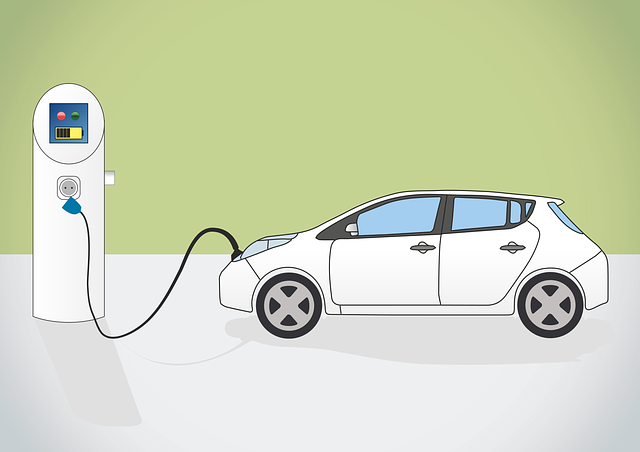PCP Claims Explained: Understanding Your Options Between PCP and Hire Purchase in the UK
When deciding on car finance options in the UK, it's important for consumers to understand tha…….

When deciding on car finance options in the UK, it's important for consumers to understand that Personal Contract Purchase (PCP) is a popular choice due to its flexible structure. A PCP agreement starts with an initial deposit, followed by monthly payments based on the car's depreciated value, culminating in a final balloon payment after the contract term. At this point, you have options: return the vehicle, purchase it outright, or trade it in for a new one. It's crucial to keep detailed records of all payments and accurately log mileage to substantiate any potential PCP claims under the Consumer Rights Act 2015. If there are discrepancies with the guaranteed minimum future value (GMFV), mileage, or condition at the contract's end, you can seek assistance from the Financial Ombudsman Service or consult legal advice. When comparing PCP to Hire Purchase (HP), know that PCP typically has lower monthly payments as it only includes the car's depreciation, while HP involves higher payments that account for both depreciation and interest. PCP claims in the UK are significant due to the frequency of people choosing to upgrade their cars, and it's essential to be aware of your obligations at the end of a PCP agreement. Remember, failure to pay the balloon payment means you don't own the car, and there are specific conditions for mileage adjustments that can affect PCP claims. Always review your contract thoroughly and maintain accurate records to manage any issues with PCP claims effectively in the UK.
When considering vehicle financing options in the UK, discerning individuals often weigh their choices between Personal Contract Purchase (PCP) and Hire Purchase (HP). This article demystifies PCP claims within the UK framework, offering a clear comparison of these two popular financial instruments. We delve into the intricacies of PCP claims, eligibility criteria, and legal considerations, providing a foundational understanding for consumers to make informed decisions. By exploring the financial specifics, cost comparisons, and common pitfalls associated with both PCP and HP agreements, readers will gain valuable insights to navigate these contracts effectively. Whether you’re contemplating a new car or seeking to understand your current PCP claim better, this guide is an essential tool for your financial journey.
- Understanding PCP Claims: A Comprehensive Guide to Personal Contract Purchase in the UK
- PCP vs Hire Purchase: Key Differences and Implications for Consumers
- Navigating the World of PCP Claims: Eligibility, Processes, and Legalities in the UK
- The Financial Breakdown: Cost Comparison Between PCP and Hire Purchase Agreements
- Common Pitfalls and Misunderstandings in PCP Claims Resolution in the UK
Understanding PCP Claims: A Comprehensive Guide to Personal Contract Purchase in the UK

When considering new or used car finance options in the UK, Personal Contract Purchase (PCP) often stands out as a popular choice for many consumers. Understanding PCP claims is crucial for anyone looking to navigate this financial product effectively. A PCP agreement allows you to pay an initial deposit followed by a series of monthly payments to cover a portion of the car’s value, known as the Guaranteed Minimum Future Value (GMFV). At the end of the contract term, you have three options: return the vehicle, purchase it outright, or trade it in for another new car. PCP claims can arise when there are discrepancies at the end of the agreement related to the GMFV, mileage, and condition of the car. It’s important for consumers to be aware that maintaining accurate records of all payments and tracking mileage accurately can support any potential PCP claims. Should a dispute occur, understanding your rights under the Consumer Rights Act 2015 is essential. In the event of a disagreement regarding the GMFV or vehicle condition, you may need to liaise with the Financial Ombudsman Service or seek legal advice to resolve PCP claims. PCP claim processes can vary between finance providers, so it’s advisable to review your agreement thoroughly and understand the specific terms and conditions before signing. This proactive approach ensures that you are well-informed and prepared should you need to make a PCP claim at the end of your contract term in the UK.
PCP vs Hire Purchase: Key Differences and Implications for Consumers

When considering the acquisition of a new vehicle, consumers in the UK frequently weigh their options between Personal Contract Purchase (PCP) and Hire Purchase (HP). Both are popular finance solutions that offer distinct features and implications. With PCP, drivers can enjoy lower monthly payments compared to HP, primarily because with PCP, you’re only paying for the depreciation of the car over an agreed term, plus a final balloon payment to own the vehicle outright. This structure is particularly attractive for those who wish to upgrade to a newer model once their contract ends. On the other hand, HP allows consumers to own the vehicle after the final payment is made. Monthly payments with HP are typically higher than PCP as they cover both depreciation and finance charges over the term of the agreement.
PCP claims in the UK have become a focal point for discussion, especially concerning the end-of-contract process. At the conclusion of a PCP agreement, consumers have three options: return the car, pay the balloon payment to own it, or part-exchange it towards a newer model. The flexibility provided by PCP agreements has made them a go-to for many car buyers. However, understanding the implications at the outset is crucial. For instance, mileage restrictions with PCP can incur additional charges if exceeded, which is not a concern with HP. Moreover, at the end of an HP agreement, the vehicle is owned outright, providing equity that can be used for future finance arrangements, unlike PCP where ownership is contingent upon the final balloon payment. Consumers must carefully consider their long-term goals and financial situation when choosing between these two options, as both have different implications and benefits. PCP claims are a testament to the popularity of this financing method, but it’s important for buyers to be fully aware of the terms and conditions associated with their chosen contract to make an informed decision.
Navigating the World of PCP Claims: Eligibility, Processes, and Legalities in the UK

Navigating PCP claims in the UK involves understanding the eligibility criteria, procedural nuances, and legal framework governing Personal Contract Purchase (PCP) agreements. PCP is a popular form of finance for obtaining new vehicles, allowing consumers to pay an initial deposit, followed by fixed monthly payments based on the depreciation of the vehicle over the agreement term, with a final optional balloon payment to own the car outright. To be eligible for a PCP deal, you typically need to be over 18, have a good credit history, and meet the lender’s criteria.
The process of claiming under a PCP agreement can vary depending on the terms agreed upon at the contract’s inception. Should unforeseen circumstances arise, such as the car being written off or being permanently disabled due to damage, PCP claimants may be entitled to voluntary termination or settlement options. Legalities are paramount, with precise documentation and adherence to the Consumer Credit Act 2006 governing these claims. It’s crucial for consumers to keep up-to-date records of their payments and to communicate effectively with their finance provider when considering a PCP claim. Understanding the specific terms of your PCP agreement is essential, as this will dictate the exact steps you need to take to make a claim, whether it be through voluntary termination, settling the finance agreement, or opting to purchase the car outright via the final balloon payment.
The Financial Breakdown: Cost Comparison Between PCP and Hire Purchase Agreements

When considering the acquisition of a new vehicle, consumers often weigh the financial implications of different financing options. Both Personal Contract Purchase (PCP) and Hire Purchase (HP) agreements are popular choices in the UK market, each with distinct characteristics that impact the total cost over the term of the agreement.
In a PCP agreement, customers typically pay a deposit followed by fixed monthly payments for an agreed period, after which they have the option to return the vehicle, purchase it outright, or part-exchange it for a new model. The monthly payments in a PCP are usually lower than those in a Hire Purchase because they only cover a portion of the car’s value – specifically, the depreciation during the contract period. At the end of the PCP term, the customer pays a final lump sum to own the vehicle outright, which is the balloon payment, based on the car’s expected future value. PCP claims in the UK have become more prevalent as consumers exercise their options at the end of their agreements, often claiming on these contracts when circumstances change, or when they decide to upgrade their vehicle.
In contrast, Hire Purchase is a straightforward loan where fixed monthly payments are made over an agreed period until the entire cost of the car is paid off. Ownership of the vehicle is transferred to the customer at the end of the HP agreement, provided all payments have been made as stipulated in the contract. The total cost of an HP agreement is typically higher than that of PCP due to the fact that the monthly payments cover the full value of the car, including interest, over the term of the agreement. While Hire Purchase offers a straightforward path to vehicle ownership, the PCP structure can be more advantageous for those looking to change their car regularly and are comfortable with a larger final payment. Understanding the financial breakdown and cost comparison between PCP and HP agreements is crucial for consumers to make informed decisions based on their personal circumstances and financial planning.
Common Pitfalls and Misunderstandings in PCP Claims Resolution in the UK

Navigating PCP claims in the UK can be complex, and numerous pitfalls and misunderstandings often complicate the resolution process. One common issue arises from the misconception that once a PCP agreement reaches the end of its term, the customer automatically becomes the owner of the car. In reality, ownership transfer is contingent upon the final balloon payment being settled. Many consumers are unaware of this requirement and may assume the vehicle is theirs without completing this critical financial step. This oversight can lead to repossession of the vehicle by the finance company until the outstanding balance is paid.
Another frequent pitfall in PCP claims resolution involves the conditions for mileage adjustments. Customers often believe they can claim back any additional costs if their car’s mileage at the end of the agreement exceeds the agreed amount. However, this is not always straightforward; it depends on the specific terms of the PCP contract and the finance company’s policies. Misunderstandings around what constitutes acceptable evidence for mileage can also delay the claims process, as customers may submit documentation that the lender does not accept, necessitating further clarification and potentially leading to disputes. It is crucial for consumers to carefully read their PCP agreement terms, understand their responsibilities, and maintain clear records of their car’s usage to avoid these common issues in the resolution of PCP claims in the UK.
When comparing PCP to Hire Purchase agreements, it’s evident that each option presents unique advantages and considerations for UK consumers. PCP Claims, a term gaining prominence in the financial landscape, offer a structured path to vehicle ownership with flexible terms tailored to individual budgetary needs. The guide has delineated the intricacies of PCP, its eligibility criteria, and the legal framework governing these agreements within the UK. By examining the cost comparisons, it’s clear that understanding the financial implications of both PCP and Hire Purchase is crucial for informed decision-making. Consumers must weigh the benefits of PCP claims, such as lower monthly payments and the option to return or purchase the vehicle at the end of the contract, against the straightforward nature of Hire Purchase agreements. In conclusion, whether you’re considering a PCP claim or evaluating Hire Purchase, it’s imperative to thoroughly assess your financial situation and long-term needs to select the agreement that aligns with your goals. For those interested in navigating these options, the provided resources serve as a comprehensive tool for making well-informed choices about vehicle financing in the UK market.







